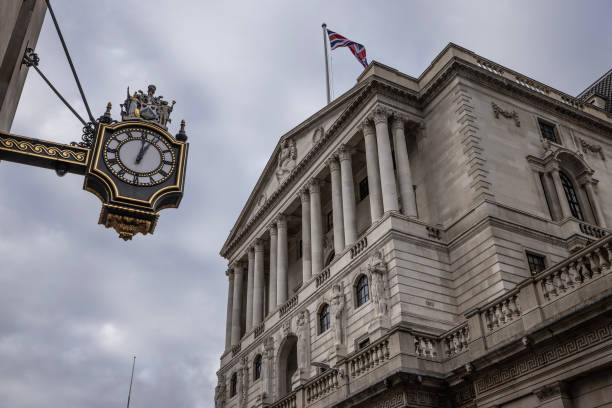Our regulators are too close to those they should be regulating – and this is a problem

Political parties of all colours have been lauding our regulators as “world class”. Unfortunately, our regulatory bodies actually have a quite problematic record of failures, writes Paul Ormerod
Late last week, news slipped out that the Treasury had asked Parliament to authorise up to £200bn to cover losses from the Bank of England’s quantitative easing (QE) scheme.
To help the economy get over the financial crisis of the late 2000s, the government agreed to cover any losses the Bank made on bonds bought as part of the QE programme. The huge potential losses essentially arose because of the dramatic rise in interest rates from the near-zero levels which prevailed for years – until recently.
Ironically, the Monetary Policy Committee of the Bank is meant to set interest rates to try and control inflation. But the Committee seriously underestimated inflation even before events in Ukraine sent it soaring. They failed to anticipate that high interest rates would be needed – a failure which could cost taxpayers an arm and a leg.
Choosing a good policy response in the face of difficult and complicated problems is never easy. Yet it’s hard to shake off the perception that the Bank fell victim to the self-congratulatory rhetoric of central banks all around the world. Until recently, inflation had been low for 20 years. The Bank was given its independence just over 20 years ago and so can take the credit. Unfortunately, correlation is not causation.
More generally, under both New Labour and the Conservatives, the regulatory bodies in the UK have regularly been lauded in ministerial statements and governmental documents as being “world class”. The reality is rather different. Indeed, it is hard to think of a single regulator which has not been involved in some piece of gross incompetence.
In the case of the Financial Conduct Authority (FCA, formerly the FSA), the struggle is to find examples of what they got right. Last year, for example, the National Audit Office savaged the FCA for its failures in the steelworkers’ pension scandal. The British Steel pension scheme was a highly desirable defined benefit scheme. Opportunist advisors, pocketing huge fees, persuaded many to ditch the scheme, resulting in an average loss per individual of nearly £100,000. The FCA was, in the words of Meg Hillier MP, chair of the powerful public accounts committee, “asleep at the wheel”.
Over the past couple of years, there have been over a million sewage discharges into rivers. The regulator, Ofwat, simply gives the water companies a light tap on the knuckles and lets the executives pocket millions in bonuses. Even the Liberal Democrats have called for Ofwat to be scrapped and replaced with something that actually works.
Environmental regulations on the storage of slurry, silage and agricultural fuel oil seem to be breached almost as often as they are observed. Yet the Environmental Agency acts in a timid and hesitant way.
An important reason for the poor performance of many regulators is what is known in economics as “regulatory capture”. The Chicago economist George Stigler won the Nobel Prize forty years ago for his work on this.
Regulators run the risk of getting too close to the producers in the industry they are meant to be regulating. Their interests become more closely aligned to the ones of these producers rather than to the ones of the consumers.
It is a comfortable world in which to live. Effort can be easily expended devising endless tick-box forms rather than trying to deal with real challenges. It’s a world into which many of our regulatory outfits have slipped. A root and branch review is needed, starting first and foremost with the Bank of England.
